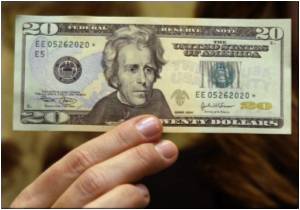Talk about wealth distribution, and Americans frankly say they would rather live somewhere like Sweden.

Business school professors Michael Norton and Dan Ariely asked 5,522 Americans about US wealth distribution and how it should look if things could be changed.
"Respondents vastly underestimated the actual level of wealth inequality in the United States, believing that the wealthiest quintile (20 percent) held about 59 percent of the wealth when the actual number is closer to 84 percent."
Studies show current US wealth inequality is near record highs, with the top one percent of Americans estimated to hold around 50 percent of the nation's wealth.
According to Norton and Ariely this tops "even the levels seen just before the Great Depression in the 1920s."
But when asked how they would like the United States to look, respondents picked "wealth distributions that were far more equitable than even their erroneously low estimates of the actual distribution."
Advertisement
The study's authors also reported a "surprising level of consensus" among different groups, with 92 percent of Republican voters backing the Swedish model versus 93.5 percent of Democratic voters, with the richest and poorest also voting along similar lines.
Advertisement
On average the top 20 percent of earners were seen as holding just 32 percent of wealth, less than the 84 percent in reality.
But anyone hoping this augurs well for a revolution will be disappointed.
Even if Americans become more aware of the wealth gap that exists, Norton and Ariely suggest they may misplaced faith in the "American Dream" to correct it.
"Just as people have erroneous beliefs about the actual level of wealth inequality, they may also hold overly optimistic beliefs about opportunities for social mobility in the United States -- beliefs which in turn may drive support for unequal distributions of wealth."
Disagreements about the causes of inequality may also drown out the consensus.
The authors also suggest there is a gap between what people would like to see and the policies they are willing to support to get there.
The study is to be published in the journal "Perspectives on Psychological Science."
Source-AFP








